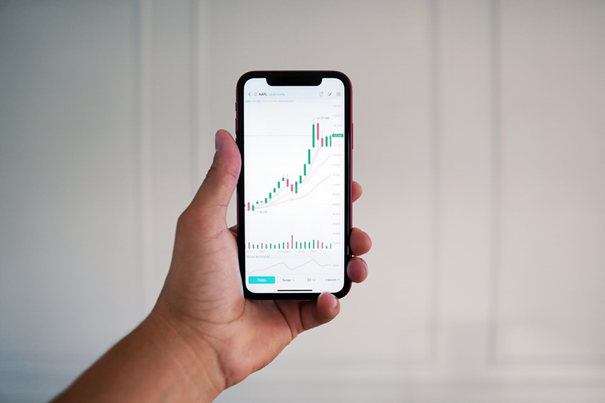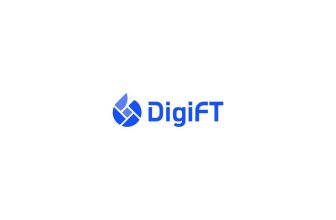
Investing our money is easily one of the top financial advises we will get. The stock market offers us opportunities to make money, start providing for the future, and protect our capital in times of crisis and inflation. Before you can start to make the best decisions when trading, you will need to find a good broker. Their trading apps allow you to take control of your actions when investing.
Which broker you chose can influence your experience and profit. Next to weeding out fraudulent providers, comparing the available offers will determine factors like the fees and variety of assets available to you. Here’s how to find a good broker.
What you'll learn 👉
How to Choose the Best Online Broker
Online resources are invaluable when it comes to finding a good service of any kind. That is as true when it comes to vendors and products, when we are looking at ratings on Amazon and Co., as it is when finding a good broker.
Websites like trusted-broker-reviews.com look at the available trading apps, their providers, and examine their service. Here, you get a good overview over the trustworthy options and their features. You can use these lists to pick the broker whose scope of service suits you most. The following factors can be important in this decision:
Track Record
When we are handling our finances, we need to pay extra attention to the trustworthiness of a service. This is especially true when we are dealing with online platforms. The anonymity of the internet is still an opportunity for scammers. That doesn’t mean that only the trading services offered by banks are trustworthy. There are many online brokers with great service.
There are multiple things to consider when you are looking at the broker’s track record and reviews:
- licensing – who is the provider? is it a financial institute with an official license? a good broker is registered, licensed, and regulated by bodies like the Financial Industry Regulatory Authority
- quality – the technological quality of the service is not unimportant, especially when you are day-trading, you will want the platform to run stable and in real time
- customer service – it is important to look at how a broker will treat you, luckily reviews will often focus on the user experience and whether it was positive or negative
Looking at these factors will lead you to a trustworthy and reliable service.
Account Fees
Using a broker will cost fees. The most common fee new users are looking out for is the running monthly or annual cost for opening and holding an account on their platform. But there can be many different kinds of fees. It is common for brokers to charge for individual transactions. Some might charge you when you are inactive for too long.
Compare these fees to each other. If you want to buy and hold assets for a long time, it won’t matter much if the transaction fee is high, in comparison to the account fee. If you are a day trader, you will make many transactions in a day, meaning you should rather look for a broker with higher account but lower transaction fees.
Pricing and Execution Fine Print
The pricing fine print for brokers can be complex. The different providers might work with different partners, third party traders, or without middlemen. They can also have different business models.
Market makers, for example, will set the prices for their assets themselves. An ECN / STP broker, however, might simply act as a connection between the trader and the market and does not influence the prices at all.
Look out for how exactly a broker handles transactions and how many parties are involved. This way, you can find out whether there are any conflicts of interest or commissions being paid that benefit the broker but not the user.
Commissions on the Investments
Some brokers charge commissions when you buy or sell assets. These might be different percentages for individual investment types. If you prefer to trade a specific kind of asset, like stocks, ETFs, or bonds, check out if and how high the commissions are. Typically, you won’t have trouble finding a broker who handles stocks or ETFs commission-free.
Account Minimums
Some brokers expect you to trade regularly and with certain sums. A minimum initial investment is relatively common. Some might expect you to trade with at least $500 or more for your first investment. Others have these limits for every single transaction. Make sure you find a broker without these limits, or that you will be able to invest these sums regularly. An inactive account often costs fees.
Tools, Education & Features
Most brokers do not have consultants that will give you advice, but expect you to read up on important information yourself. Others offer ‘social trading’ features. These apps allow you to share and discuss investment strategies with other users. If you are new to trading, try to find a broker that will help you educate yourself.
Other features include tools like a stop-loss function. By using these, you can tell the app to automatically sell an asset when it reaches a certain value to avoid losses.
Promotions
Some brokers will give you sign up bonuses. These are frequently free investment funds or an offer to match the sum for the first investment you will make using their app. You should never choose a broker based on their promotions alone. But if you have a few providers with similar quality in mind, the right bonus might just be the deciding factor.
Conclusion
Like with most services, online reviews and ratings will help you find the best option. They will consult you on the most important features, like the trustworthiness and customer experience when using a broker. Other than that, it is critical to look at the features and fees. By comparing multiple trustworthy brokers you will find on review sites, you can quickly determine which providers have the functions and services important to you.
Featured image source: (https://unsplash.com/photos/obJBg2lZjMg)







